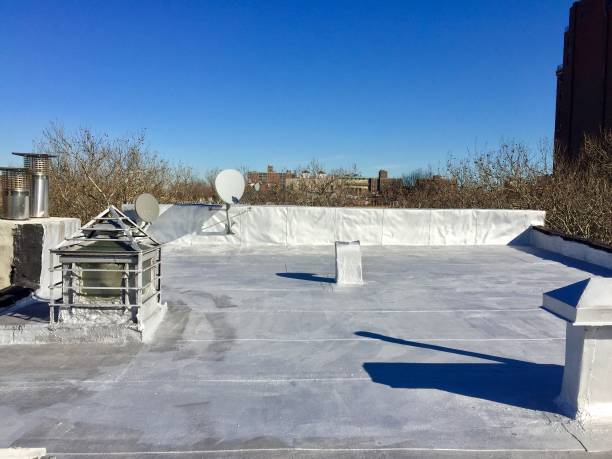Flat Roofs: Are They Right for You?
Flat Roof Designs in Arizona: Are They Right for You?
Flat roofs are prevalent in residential and commercial buildings, especially in warmer climates. But is this roofing option the best choice for your home?
What Is a Flat Roof?
Flat roofs are not entirely flat but have a slight slope for water drainage. They are typical in urban areas and are made from materials such as PVC, bitumen, and rubber.
The Benefits of Flat Roofs
Keeping yourself informed about the advantages will help you make the right decision. Here are several benefits of using a flat roof for your property:
Cost-Effective
One of the biggest draws of a flat roof is its affordability. Flat roofs require fewer materials than traditional pitched roofs, making them budget-friendly. Additionally, installation is faster and easier, reducing labor costs.
Versatile Use of Space
Flat roofs provide additional usable space. Many homeowners use them as outdoor patios, gardens, or solar panel platforms. This versatility is especially valuable in city homes with limited yard space, offering a creative way to make the most of your roof.
Easier Access
Unlike steeply pitched roofs, flat roofs are much easier and safer to access for inspections, repairs, or routine maintenance. Whether you need to clean gutters or check for leaks, navigating a flat roof is much simpler than climbing a sloped one.
The Drawbacks of Flat Roofs
While flat roofs have unique benefits, there are some disadvantages that you need to be aware of. These drawbacks include the following:
Potential for Water Pooling
Since flat roofs have a shallow slope, they can sometimes need help with water drainage. If not adequately managed, standing water can lead to roof damage or leaks over time. This is primarily a concern in areas with heavy rain or snowfall.
Shorter Lifespan
Flat roofs generally last shorter than pitched roofs. Most flat roofs last 10 to 20 years, depending on the materials and maintenance. Pitched roofs, however, can last 20 to 30 years or more.
Temperature Fluctuations
Flat roofs can absorb more heat, especially in hotter climates. Without proper insulation, this can make your home warmer in summer. Flat roofs may also need help with snow accumulation in winter, potentially leading to structural issues if the roof is not built to handle the load.
So, Is a Flat Roof Right for You?
Flat roofs have many advantages, including affordability, versatility, and easier maintenance. However, they also have potential downsides, like water pooling, shorter lifespan, and temperature challenges. A flat roof design in Arizona could be a great choice due to the dry, warm climate, giving you extra space for a garden or solar panels. On the other hand, if you face heavy rainfall or snow, consider the additional maintenance a flat roof requires.
If you want to know the best roofing for your building, contact us today at Eco Roofing Solutions, LLC. We provide a variety of roofing solutions for homes and businesses in Arizona.
Author

